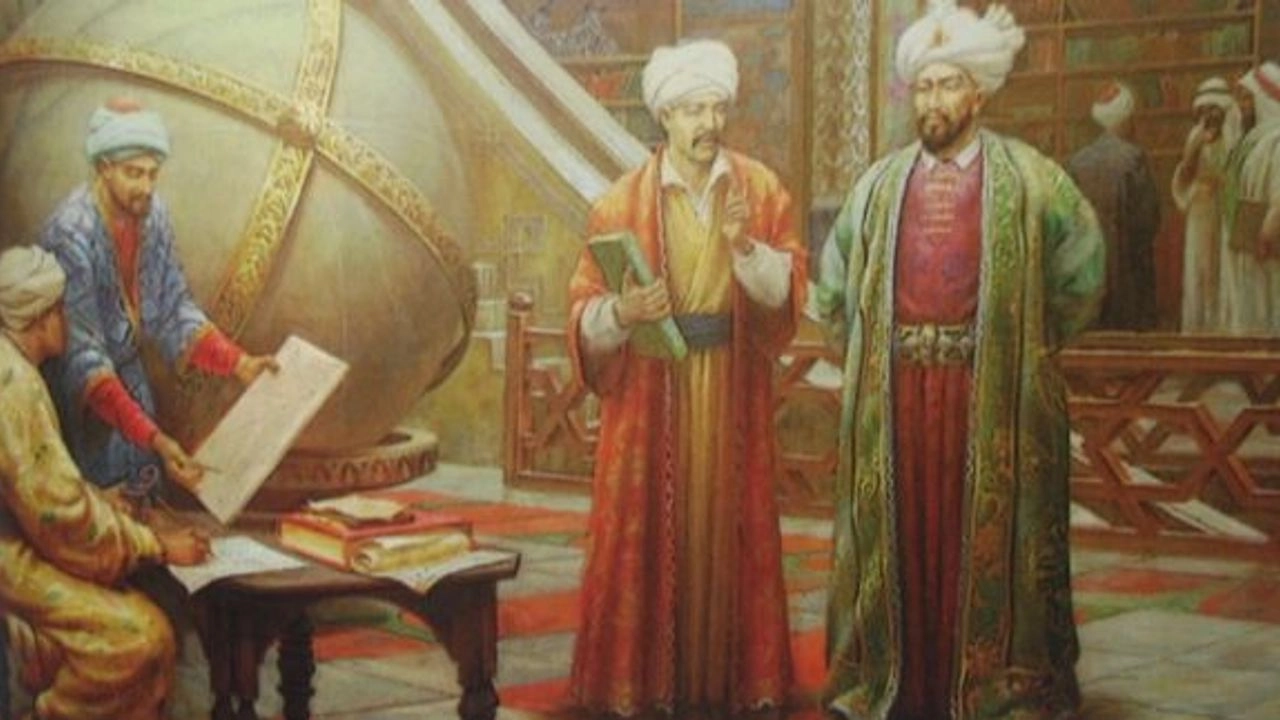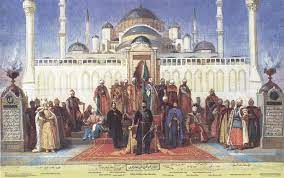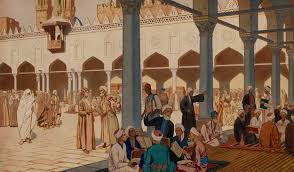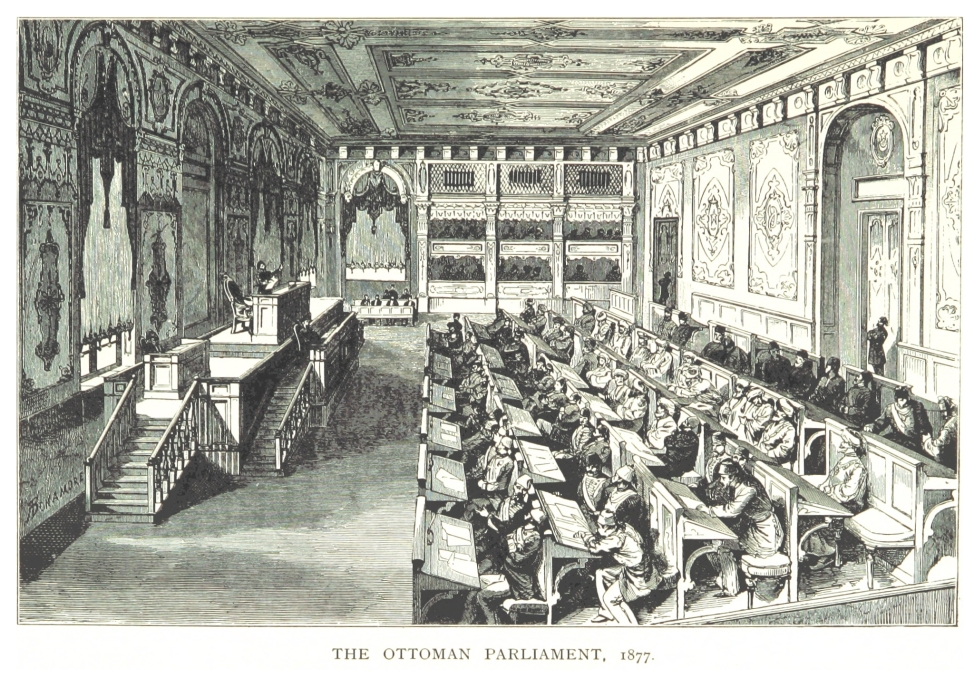Understanding Sharia Law in the Ottoman Empire
Sharia law, rooted in Islamic principles, played a pivotal role in the governance of the Ottoman Empire. It served as the primary legal framework that guided not only religious practices but also various aspects of civil law. In the context of law and justice, Sharia provided the foundation for moral and ethical standards within the society, shaping individual conduct and community interactions.
The Ottoman legal system was unique in that it synthesized Sharia directives with local customs and practices, leading to a dynamic interpretation of Islamic law. Judges, known as qadis, were responsible for the application of Sharia in courts, ensuring that legal rulings were aligned with the Quran and Hadith while considering the local context.
Furthermore, the recognition of different religious communities within the empire meant that Sharia law was often applied alongside the legal traditions of various non-Muslim populations. This coexistence fostered a diverse legal landscape, allowing the Ottomans to maintain stability in a multicultural empire.
The implications of Sharia law extended beyond mere legal provisions; it influenced social norms, family relationships, and economic transactions. For instance, inheritance laws, marriage, and criminal justice were all governed by Sharia, which emphasized justice, equity, and the welfare of the community. As such, understanding law and justice in the Ottoman Empire necessitates a comprehensive examination of how Sharia was integrated into everyday life and influenced overarching legal structures.

The Role of Kanun-i Kadim in Ottoman Justice
Kanun-i Kadim, or the Old Laws, served a crucial role in the legal framework of the Ottoman Empire, operating alongside Islamic Sharia law. This dual legal system reflects the complexities of governance and justice in a vast empire that spanned multiple cultures and religions. The law and justice provided by the Kanun was essential for maintaining order, ensuring social stability, and adapting to the practical needs of the state.
While Sharia established a moral and ethical framework based on religious principles, the Kanun-i Kadim offered specific legal codes addressing civil, criminal, and administrative matters. The Kanun was created primarily by the sultans and their advisors, evolving over time to respond to changing societal needs and governance challenges. This adaptability was vital in a multicultural empire where diverse populations sought protection under the law.
One of the key functions of the Kanun-i Kadim was its role in regulating property rights, taxes, and trade practices, which were crucial for economic stability. By providing clear, written laws, the Kanun helped prevent disputes and facilitated the resolution of conflicts through a standardized system. It ensured that individuals had legal recourse, which was particularly essential for maintaining the loyalty of diverse subjects.
Moreover, the Kanun complemented the Sharia by codifying laws that could be enforced by state authorities, bridging the gap where Sharia may have been ambiguous or lacked explicit guidance. This integration of law and governance enabled the Ottoman Empire to maintain a semblance of order while simultaneously respecting the religious traditions of its subjects. Ultimately, the Kanun-i Kadim was pivotal in shaping the judiciary and administrative practices, balancing between divine law and the practical needs of a sprawling empire.
Key Principles of Law and Justice in Ottoman Society
The Ottoman Empire, a vast and diverse realm, integrated different legal frameworks and cultural practices. At the heart of this system were the fundamental principles that guided *law and* justice throughout the empire. Understanding these principles is crucial to comprehending how the Ottoman legal system functioned and adapted over time.
One of the primary concepts was the duality of legal sources, significantly influenced by both Sharia and the Kanun-i Kadim. Sharia, derived from Islamic texts, provided a moral and ethical foundation, while the Kanun-i Kadim, a body of secular laws, addressed practical governance issues. This interplay exemplifies how the *law and* justice system was articulated through both spiritual and temporal concerns.
The following key principles defined law and justice in Ottoman society:
| Key Principle | Description |
|---|---|
| Justice ('Adalah') | The notion of fairness, ensuring that all individuals received equal treatment under the law regardless of their social status. |
| Social Order | The maintenance of public order and moral conduct through legal measures, reflecting the empire's commitment to stability. |
| Legal Pluralism | The coexistence of Sharia and Kanun-i Kadim allowed for a flexible legal system that could adapt to diverse community needs. |
| Dispute Resolution | Emphasis on mediation and reconciliation before resorting to formal legal proceedings, fostering community harmony. |
| Public Interest | Policies and laws were often designed with the welfare of the community in mind, reinforcing the significance of the collective over individual interests. |
These principles not only shaped the *law and* justice system but also reflected the values and beliefs of Ottoman society. The combination of religious and secular laws ensured that the empire could maintain order and justice while respecting a wide array of cultural practices.

The Impact of Sharia on Daily Life in the Empire
The influence of Sharia on daily life in the Ottoman Empire was profound and multifaceted, shaping social norms, legal practices, and personal conduct among the population. As a system deeply rooted in Islamic jurisprudence, Sharia governed various aspects of life, providing a framework for moral and ethical behavior.
One of the primary areas affected by Sharia was family law. Marriage, divorce, and inheritance were dictated by Sharia principles, ensuring that individuals adhered to religious obligations. For instance, the rules regarding polygamy allowed men to have multiple wives, provided they could support them fairly. Disputes over family matters were often resolved in religious courts, highlighting the interactive nature of law and personal life.
In matters of commerce, Sharia placed significant importance on fair trade practices. The prevention of usury (riba) was a fundamental tenet, leading to the development of alternative financial systems within the empire. Entrepreneurs and merchants were expected to conduct their businesses in a manner consistent with Islamic ethics, promoting honesty and transparency.
Sharia also impacted daily rituals and practices, such as prayer, fasting, and zakat (charitable giving). These obligations not only reinforced religious devotion but also fostered a sense of community among Muslims in the empire. Public observance of religious festivals was pivotal in cultivating a collective identity.
The imposition of Sharia across various regions of the empire meant that discrepancies in application existed, especially in diverse areas with different cultural backgrounds. Local customs often fused with Sharia, leading to unique interpretations and practices, which sometimes complicated legal proceedings and law enforcement.
Overall, the intersection of law and daily life created a cohesive society that integrated religious obligations into the public and private domains. The legacy of this integration has left lasting impressions on social structures and legal frameworks in modern times.
Conflict Between Sharia and Kanun-i Kadim Regulations
The relationship between law and justice in the Ottoman Empire was marked by a complex interplay between Sharia law and the Kanun-i Kadim, the secular legal code. While Sharia provided a religious framework for law, guiding moral and ethical behavior, the Kanun-i Kadim complemented it by addressing matters that were not explicitly mentioned in Islamic texts.
This dual legal system often resulted in conflicts, particularly in areas such as property rights, family law, and criminal justice. For example, in matters of inheritance, Sharia prescribed specific shares for heirs, while the Kanun-i Kadim introduced additional regulations that could potentially alter these distributions to ensure social stability or government interest.
One notable area of conflict was in criminal justice. Crimes like theft or adultery were governed by both Sharia and Kanun; however, the punishment stipulated under Sharia could sometimes be seen as too harsh or not aligned with the prevalent societal norms that the Kanun aimed to uphold. For instance, Sharia law might call for severe penalties such as amputation for theft, while the Kanun's alternative penalties were often less severe, allowing judges more discretion to deliver sentences deemed appropriate for the context.
This tension between the two systems was further complicated by the roles of the law and justice administrators, including judges and legal scholars, who often had to navigate these discrepancies daily. Some jurists attempted to harmonize the two legal traditions, advocating for interpretations that respected both Sharia and Kanun principles. However, their efforts were not always successful, leading to ongoing debates within Ottoman society about the appropriate balance between divine law and state law.
As the Empire evolved, these conflicts continued to shape legal reforms and the implementation of justice, as authorities sought to address the changing needs of a diverse population while remaining true to their roots in both law and religion.
Overall, the tensions between Sharia and the Kanun-i Kadim illustrated the dynamic nature of the Ottoman legal system, reflecting broader societal trends and challenges in maintaining a cohesive and just framework for governance.

Historical Development of Legal Systems in the Ottoman Empire
The historical development of legal systems in the Ottoman Empire is a rich tapestry woven from Islamic law, customary practices, and administrative regulations. At the heart of this evolution was the dual legal framework consisting of Sharia and the Kanun-i Kadim, which adapted over the centuries to address the needs of a diverse and expanding empire.
Initially, Sharia served as the foundational legal authority, derived from the Quran and the Hadith, guiding personal and civil matters across the empire. With the establishment of the Ottomans, particularly under the rule of Sultan Suleiman the Magnificent, there was a significant shift when the sultanate began to consolidate its power and formalize law and justice through the enactment of the Kanun-i Kadim. This set of secular laws governed administrative, criminal, and financial matters, thus complementing Islamic jurisprudence.
As the empire expanded into Europe, Asia, and Africa, the interplay between local customs and Ottoman legal standards became increasingly important. Regional courts, led by appointed judges known as qadis, applied both Sharia and the Kanun-i Kadim in a manner that took into account the local traditions and social norms, creating a hybrid legal system.
By the 19th century, the Tanzimat reforms aimed to modernize the empire’s legal framework underscored a significant departure from traditional practices. The establishment of secular law codes in civil and commercial law marked the beginning of the transition toward a more centralized and uniform system that reduced the influence of Sharia in favor of European legal principles. This period illustrated how historical developments in Ottoman legal systems were deeply intertwined with the empire’s response to internal challenges and external pressures.
In conclusion, the evolution of legal systems under the Ottoman Empire demonstrates a dynamic and adaptive approach to governance that reflected both Islamic traditions and the pragmatic needs of a vast and diverse territory. The legacy of these historical developments continues to influence contemporary legal discourse in regions formerly under Ottoman rule, showcasing the enduring significance of law and justice in shaping societies.
Analysis of Justice Administration Under Ottoman Rule
The administration of justice in the Ottoman Empire was a complex interplay of Sharia, derived from Islamic law, and the legal framework provided by Kanun, which consisted of secular laws. This dual system was designed to maintain order and address the diverse needs of a multi-ethnic empire. The law and justice system was administered at various levels, from local courts known as kadı courts to higher imperial courts, establishing a hierarchy that allowed for the efficient processing of legal matters.
At the local level, kadi judges held significant responsibility, acting as both judges and administrators. They were expected to interpret and apply Sharia law to local cases, considering both traditional principles and the necessities of contemporary life. This allowed for some flexibility in legal interpretations, which was crucial given the diverse cultural and religious backgrounds of the empire’s subjects.
The Ottoman legal framework was characterized by its emphasis on attending to the needs of the state while ensuring justice for its subjects. The sultans played an important role in shaping law and justice; they issued fermans (royal decrees) that complemented existing laws, often to address newly arising issues that Sharia law did not specifically cover. This proactive approach to legal administration helped bolster the law and justice system's effectiveness in maintaining order and fostering loyalty among the populace.
Furthermore, the practice of administrative justice also included a system of checks and balances. The shayk al-Islam, as the highest authority in religious matters, oversaw the integration of Sharia with state laws. This ensures that the interpretations upheld by local courts remained consistent with overarching Islamic principles, thus maintaining a degree of uniformity across the empire's various regions.
In summary, the analysis of justice administration under Ottoman rule reveals a nuanced interaction between Sharia and secular laws, aiming to provide an effective system of law and justice that addressed both the religious and practical needs of its diverse people. This multifaceted approach allowed the Ottoman Empire to function cohesively for centuries, balancing tradition with the evolving dynamics of society.

Influence of Islamic Law on Ottoman Legal Practices
The legal framework of the Ottoman Empire was significantly shaped by Islamic law, which was deeply integrated into the daily governance and societal norms of the time. Law and justice in the empire were not only shaped by the caliphate's religious duties but also by the practical needs of managing a diverse population under one rule.
Islamic law, or Sharia, provided a comprehensive set of guidelines for legal, moral, and ethical behavior among Muslims. The Ottomans adopted a unique interpretation of Islamic law that allowed local customs and traditions to coexist alongside these religious principles. This adaptation is key to understanding how law and justice were administered in the empire.
Several key aspects illustrate the profound influence of Islamic law on Ottoman legal practices:
| Aspect | Description |
|---|---|
| Judicial Authority | Judges, or qadis, were appointed to interpret Sharia, ensuring its principles were upheld in courts. |
| Legal Pluralism | Alongside Sharia, customary laws (Kanun) were recognized, allowing for a more flexible legal system. |
| Religious Court System | Religious courts addressed personal status issues such as marriage, divorce, and inheritance, applying Sharia directly. |
| Legal Education | Schools and institutions provided training in Islamic jurisprudence, emphasizing the importance of understanding both Sharia and local laws. |
Furthermore, the interaction between Sharia and the administrative justice system resulted in a nuanced approach that often prioritized local customs while still adhering to fundamental Islamic principles. This balance allowed the Ottomans to maintain order and stability across their vast empire, reflecting the essential role of Islamic law in shaping the landscape of law and justice during this period.
Evaluating the Effectiveness of Law and Justice Systems
In assessing the effectiveness of law and justice systems in the Ottoman Empire, it is crucial to consider both Sharia and Kanun-i Kadim. These two legal frameworks not only coexisted but also shaped the principles of justice and order within the empire. The efficacy of these systems can be evaluated through several key aspects:
| Criteria | Sharia | Kanun-i Kadim |
|---|---|---|
| Accessibility | Provided guidance primarily to Muslim subjects | Aimed to create universally applicable laws for all subjects |
| Flexibility | Based on religious texts, which limited interpretations | More adaptable, allowing for modifications over time |
| Consistency | Varied, based on local interpretations by judges | More standardized across territories, promoting uniformity |
| Social Impact | Fostered community norms within Muslim populations | Encouraged integration of diverse ethnic groups and cultures |
One of the strengths of the law and justice systems was their ability to address the unique needs of a diverse population comprising various religious and ethnic backgrounds. The dual approach of implementing both Sharia and Kanun-i Kadim allowed for a more inclusive system. However, this also led to complexities and sometimes conflicts in law enforcement, which could undermine their overall effectiveness.
Furthermore, the administration of justice often reflected the socio-political dynamics of the time. The role of the Beys and local judiciary systems could influence how laws were applied, resulting in disparities in justice delivery. This layered complexity highlights the challenges faced by the Ottoman Empire in maintaining a fair legal system while striving to unify its populace under a cohesive legal framework.
In conclusion, the effectiveness of law and justice systems in the Ottoman Empire was marked by both strengths and limitations. While Sharia provided a moral foundation, Kanun-i Kadim facilitated a broader, more adaptable legal structure. The interplay between these systems played a crucial role in shaping the legal landscape of the empire and its legacy continues to influence modern legal thought.
Legacy of Ottoman Law and Its Modern Implications
The legal framework established during the Ottoman Empire has left a lasting legacy that continues to influence contemporary legal systems, particularly in regions that were part of the empire. The duality of legal sources, with Sharia governing personal status laws and the Kanun-i Kadim addressing administrative and civil matters, created a complex yet effective system of governance that balanced religious and secular interests.
Many countries in the Middle East and North Africa still reflect aspects of law and governance drawn from Ottoman precedents. The integration of Islamic law into modern legislation can be seen in areas such as family law, inheritance, and criminal justice, where remnants of the dual system endure. For instance, nations like Turkey, Egypt, and Morocco have reformed their legal codes to both align with international human rights standards and preserve historical cultural identities rooted in Ottoman practices.
Furthermore, the Ottoman legal system’s emphasis on justice and order provided a framework that has been adapted in modern legal reforms. The dual authority of religious and civil law is observed in various legal practices today, demonstrating the enduring influence of the Ottoman approach to law and justice. These adaptations contribute to discussions surrounding the modernization of law in predominantly Muslim societies, as they reconcile traditional interpretations with contemporary legal needs.
As we move forward, the legacy of Ottoman law will remain relevant in ongoing debates about governance, civil rights, and the integration of religious principles into modern legal frameworks. Understanding this legacy not only sheds light on historical legal practices but also offers insights into current challenges and transformations within legal systems influenced by Ottoman precedents.
Frequently Asked Questions
What was the primary legal framework of the Ottoman Empire?
The primary legal framework of the Ottoman Empire was a combination of Sharia law, derived from Islamic principles, and Kanun-i Kadim, which included traditional laws enacted by the sultan.
How did Sharia influence legal proceedings in the Ottoman Empire?
Sharia played a significant role in the legal proceedings of the Ottoman Empire by providing guidelines for personal status matters such as marriage, inheritance, and family law, often determining the framework within which court decisions were made.
What is Kanun-i Kadim, and how did it differ from Sharia?
Kanun-i Kadim refers to the secular, state-enacted laws of the Ottoman Empire, which were distinct from Sharia in that they addressed public and administrative affairs, enabling the sultan to adapt legal practices to the needs of society while maintaining a level of Islamic governance.
What role did the Sultan play in the legal system of the Ottoman Empire?
The Sultan served as both the head of state and the highest legal authority in the Ottoman Empire, responsible for the enactment of Kanun-i Kadim laws and the interpretation and application of Sharia law, often establishing courts to administer justice.
How did the legal system reflect the diverse population of the Ottoman Empire?
The legal system of the Ottoman Empire reflected its diverse population by allowing for various religious communities to govern their personal status laws according to their own legal traditions, thus fostering a degree of legal pluralism.
What were some challenges faced by the legal system in the Ottoman Empire?
Challenges faced by the legal system in the Ottoman Empire included balancing traditional Islamic laws with modernizing influences, addressing the needs of an increasingly diverse and changing society, and dealing with corruption and inefficiencies within the judicial system.
How has the legacy of Ottoman law influenced modern legal systems in the region?
The legacy of Ottoman law continues to influence modern legal systems in many countries in the region by providing a basis for legal frameworks, particularly in personal status laws, and shaping contemporary discussions on the role of Islamic law in modern governance.

